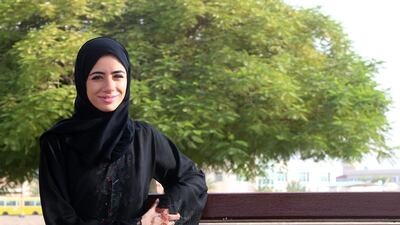ABU DHABI // Aeronautical engineering, nuclear energy and space technologies are not the first careers most young Emirati women consider when thinking about their future.
But that is increasingly the case for a new generation as the UAE continues to work towards securing its post-oil future.
At Strata Manufacturing, an advanced composite aerostructures manufacturing facility in Al Ain, part of Mubadala, 86 per cent of the Emirati workforce are women.
“It is an unprecedented outcome that is unique to the entire global aerospace industry,” said Badr Al Olama, Strata’s chief executive. “The aerospace industry is an integral part of the UAE’s vision of sustaining a diversified industrial and knowledge-based economy that embodies national capabilities at its core.
“At Strata, we are empowered by Emirati men and women who work seamlessly with their colleagues from over 30 nationalities to manufacture components that are used by the world’s leading aircraft manufacturers, such as Airbus and Boeing.”
Afra AlGhaithi, a 21-year-old from Abu Dhabi, has just completed her third year in aeronautical engineering at the Higher Colleges of Technology.
“I’m the eldest child and only girl in my family,” she said. “My family think that I am different to regular Emirati girls in the way that I think so they don’t judge me. They just accept it, although the people I am surrounded with might complain about what they see me doing.”
She hopes to break the stereotypes about the jobs Emirati women are expected to work in.
“They say it’s not what an Emirati woman should do,” she said. “The typical Emirati woman thinks in a different way. But it’s not shameful, my family is open to other cultures.”
Ms AlGhaithi said one had to be forward thinking when considering the future.
Ms AlGhaithi hopes to design commercial planes for the UAE. “My goal has never changed, and my parents were always very supportive,” she said. “We’re only about 25 Emirati girls in my course out of hundreds, and I even think we became fewer than when we first started.”
Sarah Amiri, the Emirates Mars Mission science leader at the Mohammed bin Rashid Space Centre, said her industry has been dominated by men internationally, but that that had not deterred her.
“That image to me was the global image and not the one that I saw here in the UAE, where education opportunities in the sciences have been equal and where there are more women graduating from the sciences than men,” she said.
“The classification system of stars and analysing countless telescope images to learn more about our universe was done by a team of women scientists. When it comes to programming, the first thoughts and ideas of computing and programming started from [19th-century English mathematician] Ada Lovelace.
“Those women who lived much before my time set the path for myself and others to become scientists and engineers.”
The scientific team working on the Hope probe that will journey to Mars is predominantly female, while the centre’s engineers, experts and science researchers are 40 per cent female.
“It is a definite misconception that space is a profession for which male dominance is an issue,” Ms Amiri said. “To prosper in space one needs to be at the forefront of progressive thought, modern values and leadership. As the chairwoman of the Emirates Scientists Council, I have met exceptional people advancing their individual fields of science. To me, the notion that science is male dominated is a stereotype that we should not uphold in our world today.”
She said that stereotype was from a society that no longer existed. “Each of us should pursue our dreams and achieve them without any imposed self-limiting beliefs,” she said.
“Today, I can safely say that I have progressed based on personal merit, my achievements and what I am capable of doing. We have reached a point in the UAE where gender is not synonymous with the kind of knowledge you receive or the area you can work in. Rather, opportunity exists for those who want it and seek to accomplish in it.”
Azza Al Bakr, a 24-year-old microsystems engineer from Ras Al Khaimah, said her family was not at first supportive of her career.
“Things have changed,” she said. “More women are getting into engineering and aerospace which is very impressive. I feel very proud, honestly, because it’s very empowering.”
Experts said this clearly showed the level of education and ambition of Emirati women. “We are now focusing on aeronautical engineering and an educational institute in the UAE to allow Emirati women to receive knowledge and experience without leaving the country,” said Mervat Sultan, the president of Women in Aviation in the Middle East.
“There is a lack in aeronautical science within the new generation, but school is the most important stage to introduce such knowledge.”
cmalek@thenational.ae

